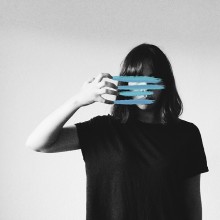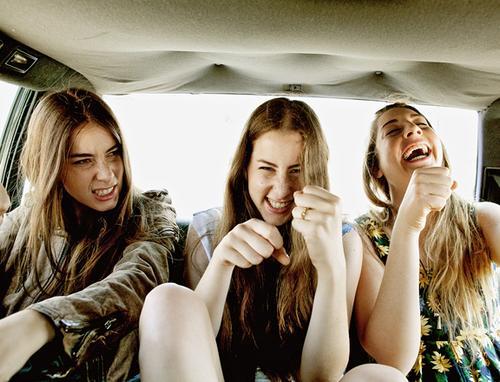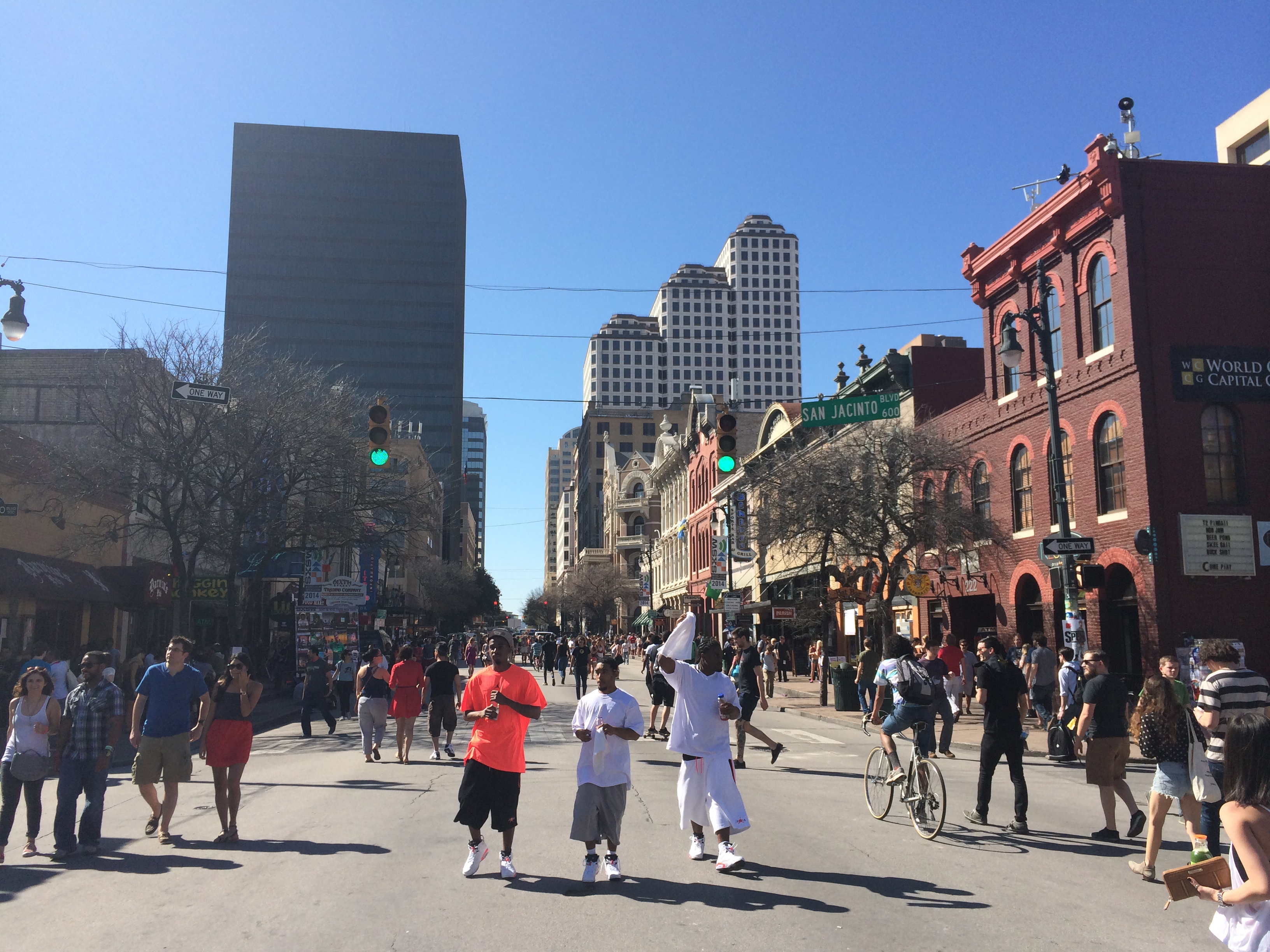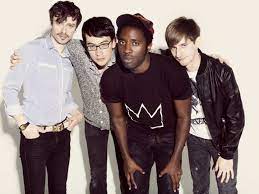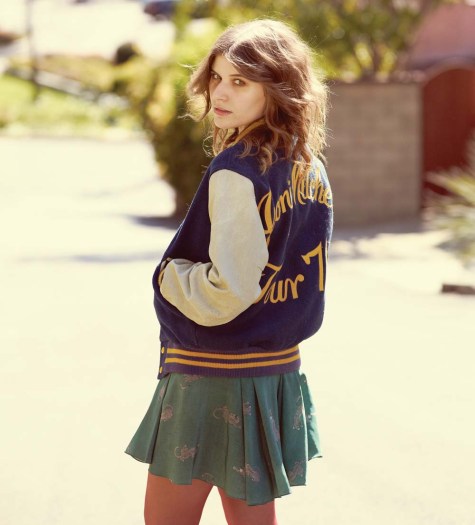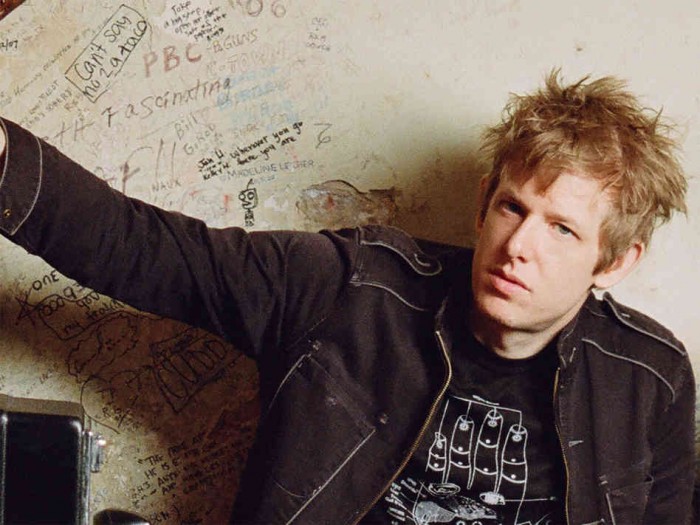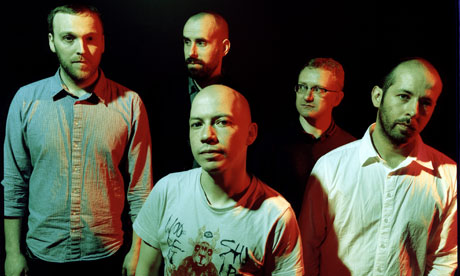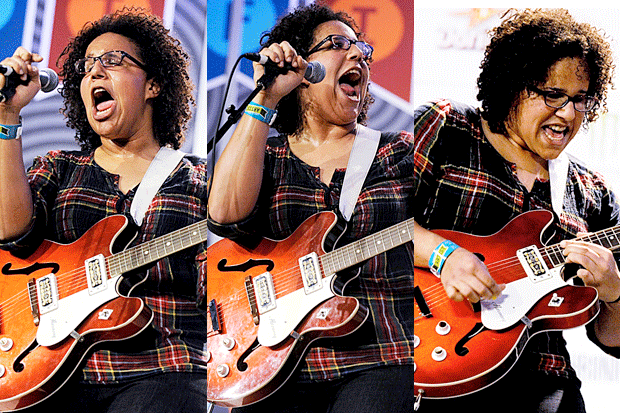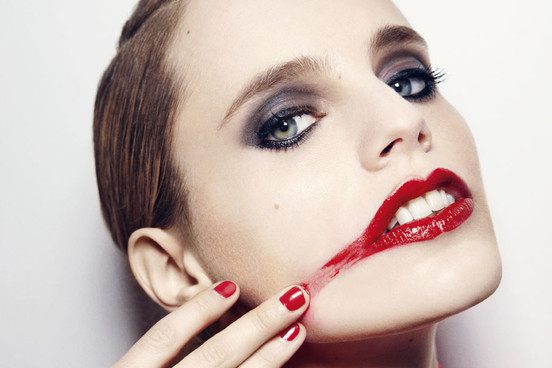“There’s a lot of things that are not quite as they seem”
 It’s been an intensive journey for Band Of Skulls. Their third album evokes blues rock and shows an increasingly distinctive sound. They have released “Himalayan” (Psycollective / [PIAS] 2014) this year with very positive reviews from critic and fans.
It’s been an intensive journey for Band Of Skulls. Their third album evokes blues rock and shows an increasingly distinctive sound. They have released “Himalayan” (Psycollective / [PIAS] 2014) this year with very positive reviews from critic and fans.
Tired of being compared to QOTSA or White Stripes, the new album confirms they’re one of the most interesting bands in the british rock nowadays.
We got the chance to talk to Emma, Russell and Matt at their last visit to Spain during last edition of the DCode festival.
How are you? How is the tour going on?
Emma – Good. Yeah. We had a bit of time off but we’ve been touring from February this year, really.
Because now you’re playing until November I think and then going to Australia?
Russell – Yeah it never stops.
I think Himalaya it’s a pretty loud record. I don’t know if you agree but, Was that your intention after releasing Sweet Sour?
Emma – The loud sound.
Russell – Yeah I guess we compare our work with the other work we’ve done. So yeah we listened to the other records before we went into this new album. I guess we have to try to better ourselves, you know. I think this record’s quite a good combination of all the elements of the band. It almost sits in the middle of the other two records.
Your live performances are very powerful, were you trying to reflect that energy in the album?
Russell – Yeah, to a certain amount, but it is difficult. Making records is a different thing completely to playing a gig. But we try and keep the records not too, what’s the word? We try to keep them free. So when we record we might try and take a whole take and we don’t use any click tracks or anything if we can help it. We recorded all of the backing tracks together, which was a first for us really.
Are you still all involved in the writing process? Do you think is something important in order to keep a band together?
Russell – It takes a long time but it does produce really great songs I think. It’s the way we work. It just takes a long time for everyone to show their ideas and then we all start working on everything all at once. When we first start making a record there’s hundreds of ideas and we have to then edit them down into probably twelve songs.
Is there something in this album you’re particularly proud of, that for instance, you couldn’t hear in previous albums?
Russell – Particularly proud? No.
What makes this album special?
Emma – I think every record is special. We worked with Nick Launay for the first time. He produced this album. He mixed Sweet Sour so that’s how we got to know him. But he came in and brought his head and his ideas with it, which was a really great process and we learnt a lot. We were pushed and we pushed ourselves to follow through new ideas.
How’s been working with producer Nick Launay?
Russell – There’s freedom to try new ideas. Also it gave us the feeling that we could work with other people. We started to realise what elements are us and we can recognize what elements other people bring in. We learnt a lot. We understand our band a bit more after this record I think.
Do you kind of, get rid of pressure with the 3rd album?
Russell – Different kind of pressure.
Matt – There’s always pressure but it’s pressure we but on ourselves. Not from an outside kind of point of view. We want to make something we’re 100% proud of. That’s a big pressure in itself. So we were very pleased at the end of the process when we could sit and listen to this record and be 100% proud.
Russell – And having three records now has almost taken the pressure off. At our gigs, we’ve got enough songs now to make our show how we’ve always wanted it to be I think. But then you’ve got this responsibility of all this other music. It gets difficult to choose the songs to play.
«Everyone is putting synthesizers on a record because they feel they have to»
I reckon Band Of Skulls is a band that don’t complicate too much when recording an album, but are you tempted to add digital sounds, synthesizers or something like that?
Russell – We have lots of things on are records and we always have done. We just never talk about it so no one ever says, “there’s a synthesizer there.” If you really listen there’s a lot of things that are not quite as they seem. That’s what making records is. It’s not the powerful live thing. It’s making an experience for your headphones. So we’re really open minded in the studio. We use small, subtle sounds that just make the record more interesting. And just under a hundred guitars.
Emma – It’s all for the good of the song. It’s got to benefit the song somehow if we’re going to use a different instrument. There’s got to be a reason for it.
Matt – Yeah. Anyone putting synthesizers on a record because they feel they have to, because everyone else is, that’s a very bad way to approach making records.
In fact, you’re pretty difficult to label or to tag you in a specific style. Is that the secret to survive in the music industry today?
Russell – The secret really is to be yourself and then if someone criticises your music you go, “OK we’re just being ourselves”. You’re not trying to be of a certain style or era or fashion. And then when people do like what you’re doing you can feel 100% proud because it’s your work. That’s probably our secret. We believe in our music because it really is from us. There’s no other thing going on.
The album has been out for only few months, but do you already have an idea of how do you want to sound like in the next album?
Russell – It comes naturally. I think in the next few months we’ll start talking about it. You always learn from making a record and then touring that record. So I think we’ve learnt a bit more about ourselves by playing these songs live. We tried to write quite challenging songs this time. They weren’t easy to play. It might be nice to play some more natural songs. Songs that come a bit more naturally. We’ll have to see though. Who knows?
I want to ask you something. Talking with Liam from The Courteeners, he said that it comes down to one person, in the UK to get on Radio 1. Is it really that hard? Is it something that you worried about or do you consider yourselves more of a word of mouth band?
Russell – We definitely started out as a word of mouth band. But we have also had some moments of being played on the radio. And it’s true, it’s a very small amount of people that can say yes or no to which music goes on the radio. The trick is not to be too disheartened if this particular moment is not yours. You just have to carry on working and it comes around again. You can’t have the same ten songs on the radio all year long. Just go and write another song.
Also, I’d like to ask you about your covers, they look very psychologic.
Emma – They’re kind of abstract. It’s a collaboration usually. We came up with a theme that we wanted from the beginning and that’s fed through all three albums. So the first was a painting of mine, the second was a sculpture we had made by someone else and the third was a computer generated image of the sound waves of Himalayan, the song. So we just tried to keep a theme.
Russell – The covers are much more difficult than the music. Coming up with another idea to beat digital soundscapes is going to be… who knows?
What about the name of the album?
Russell – It was something to aim for. There was a lyric and then a song. And then Emma came in with the title, put it in the pot for consideration like we do with everything. It felt like a good thing to call the record that we hadn’t finished. It gave us something to aim for. You can’t make a record call Himalayan and it be damp. It has to be proud of itself. So that’s when the record got even louder – when it got it’s title.
And last quesiton. Are you happy?
Emma – Yeah
Russell – We’re in Spain so if today we weren’t happy it would be bad. So we’re very happy. And why not?
DB





